You know, it’s not the EVs that I despise. It’s the overall uninspiring lack of character they have. No matter how you want to try and slice it & serve it to me… current new-model EVs lack soul, substance, & passion. Not to mention – I find all these overpriced new look-at-me EVs to be ironic & contradictory in the ‘green’ sense too. What can I say – this whole enlightened EV agenda just hasn’t hooked me yet. But this EV-converted Volkswagen Vanagon from DreamEV – this does hook me. It’s got that old car funk if you know what I mean. An EV with some actual grit, style, and substance in its DNA.
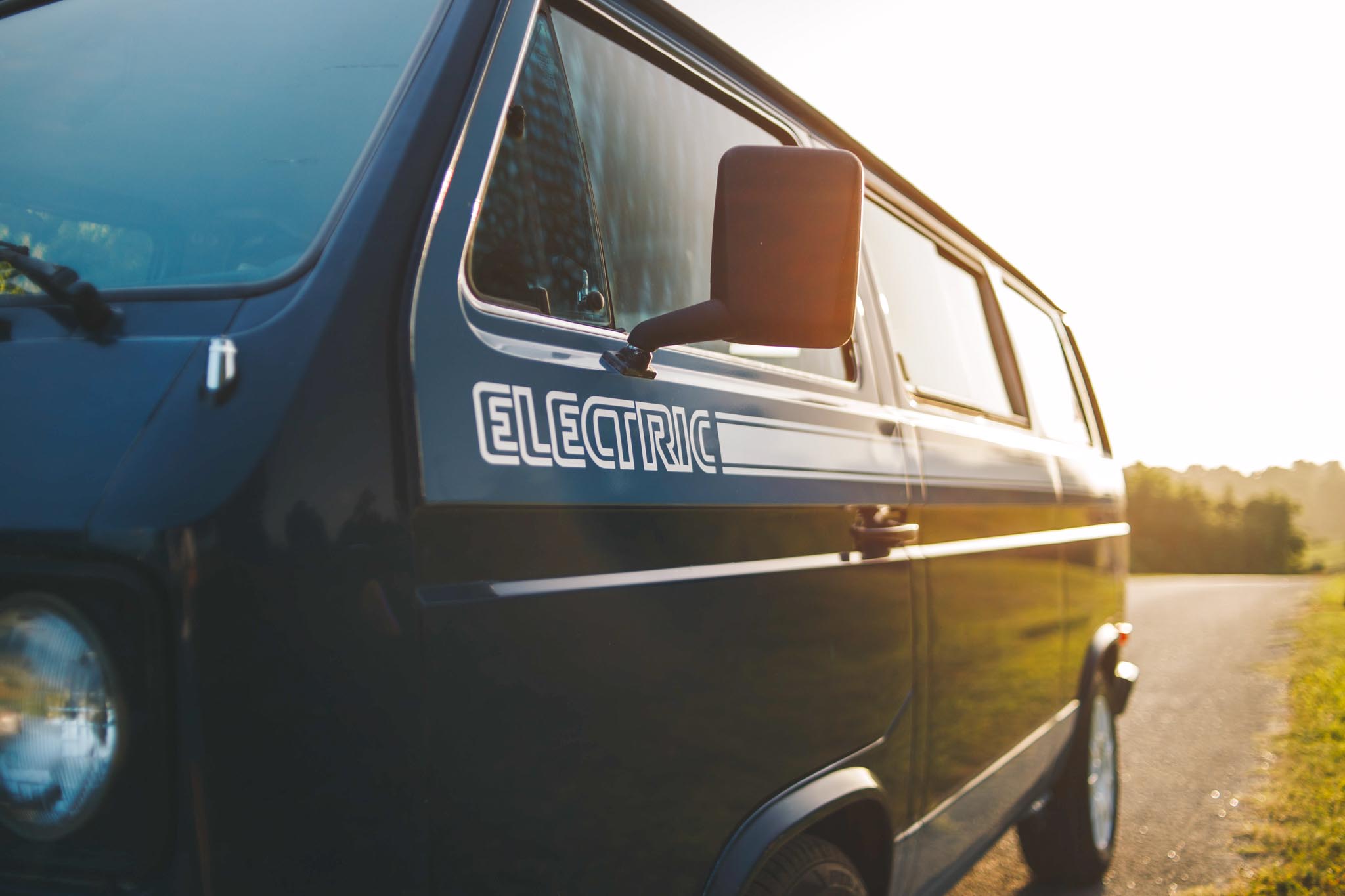
Let me get to it…
DreamEV (based out of Nashville) will take whatever internal combustion vehicle you fancy, and convert it to an EV. They’ll do it for a flat $15,000 labor price, and you’re responsible for all the parts cost. Cheap? That depends I guess. It’s probably about the cost of a regular Tesla 3 when you consider car + conversion + parts. But unique & cool? Hell yes man. Definitely yes.
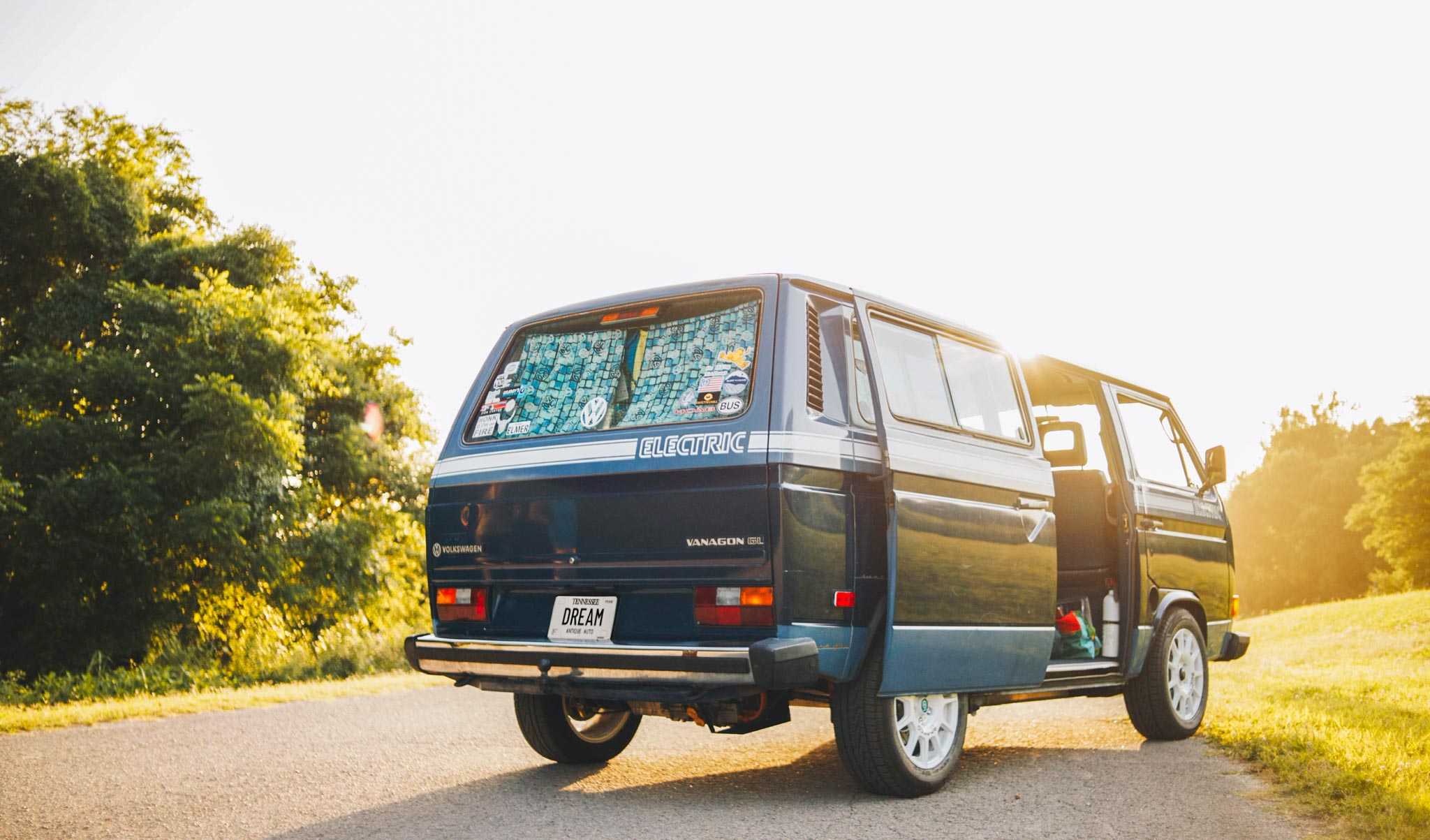
Grocery list…
The largest components (and expenses) are the electric motor & the battery. For example, a pull-out Tesla motor should currently run between $4,000 & $8,000… depending on how powerful you want it to be. And remember, you might also want dual motors & AWD. Batteries are also a real expense. But I guess you’ve just gotta look at it as: You’re buying all the gas upfront. That is… if charging stays cheap.
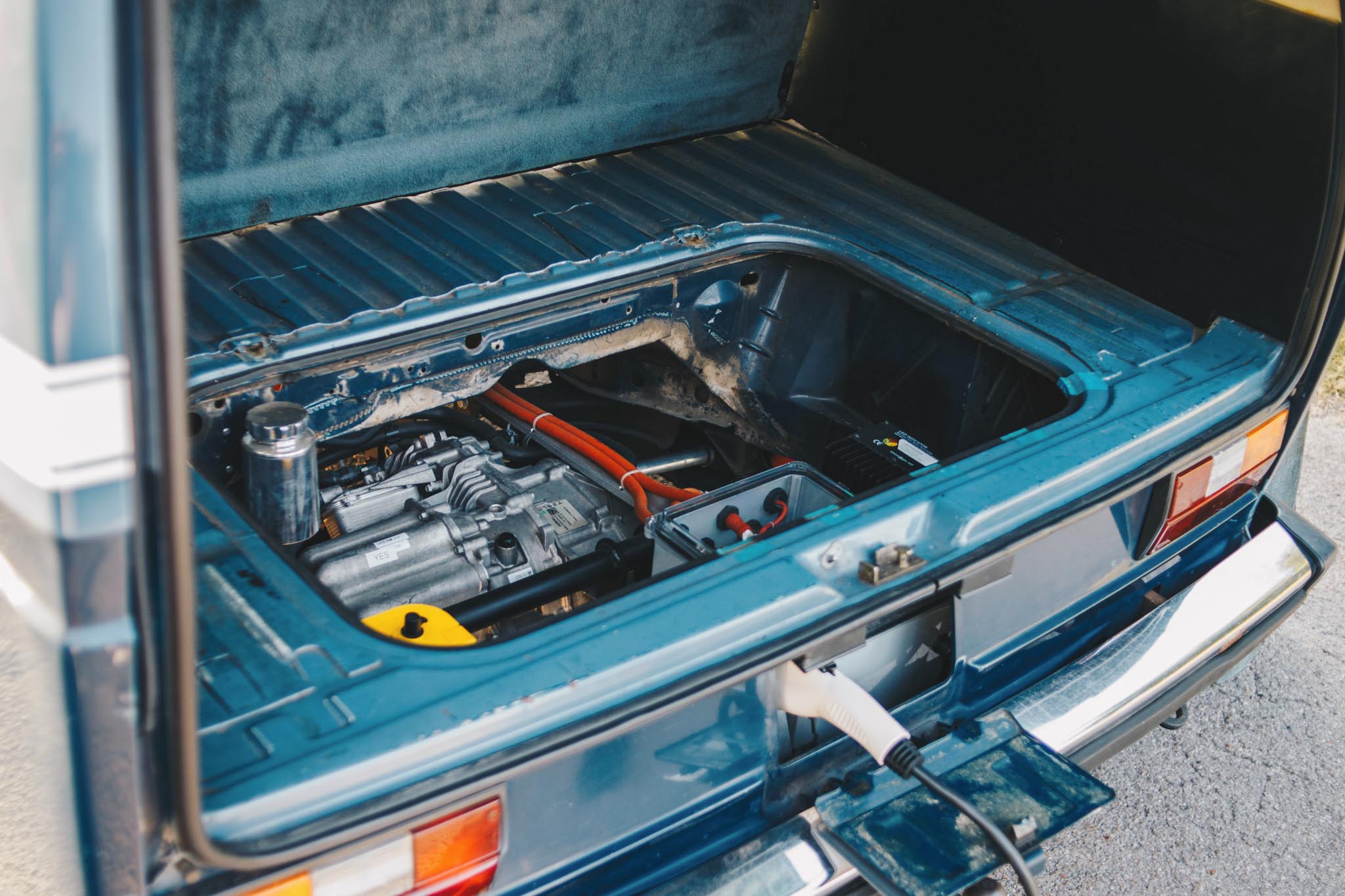
When is comes to batteries, these days, OEMs are sucking up all the raw materials for their own frantic EV battery production. And that’s probably only going to get much more cut-throat & costly before it ever gets better. Therefore it’s likely more sensible to go ‘the junkyard route’ & pull something out of an existing EV or hybrid. It seems like going with hybrid batteries is a bit of a cheat-code budget-wise if you know how to do it. But you do have to combine them. It’s still not cheap… but cheap-er, as buying a used long-range Tesla battery can easily be upwards of $15,000. DreamEV knows how to get creative with batteries, based on your vehicle & your needs.
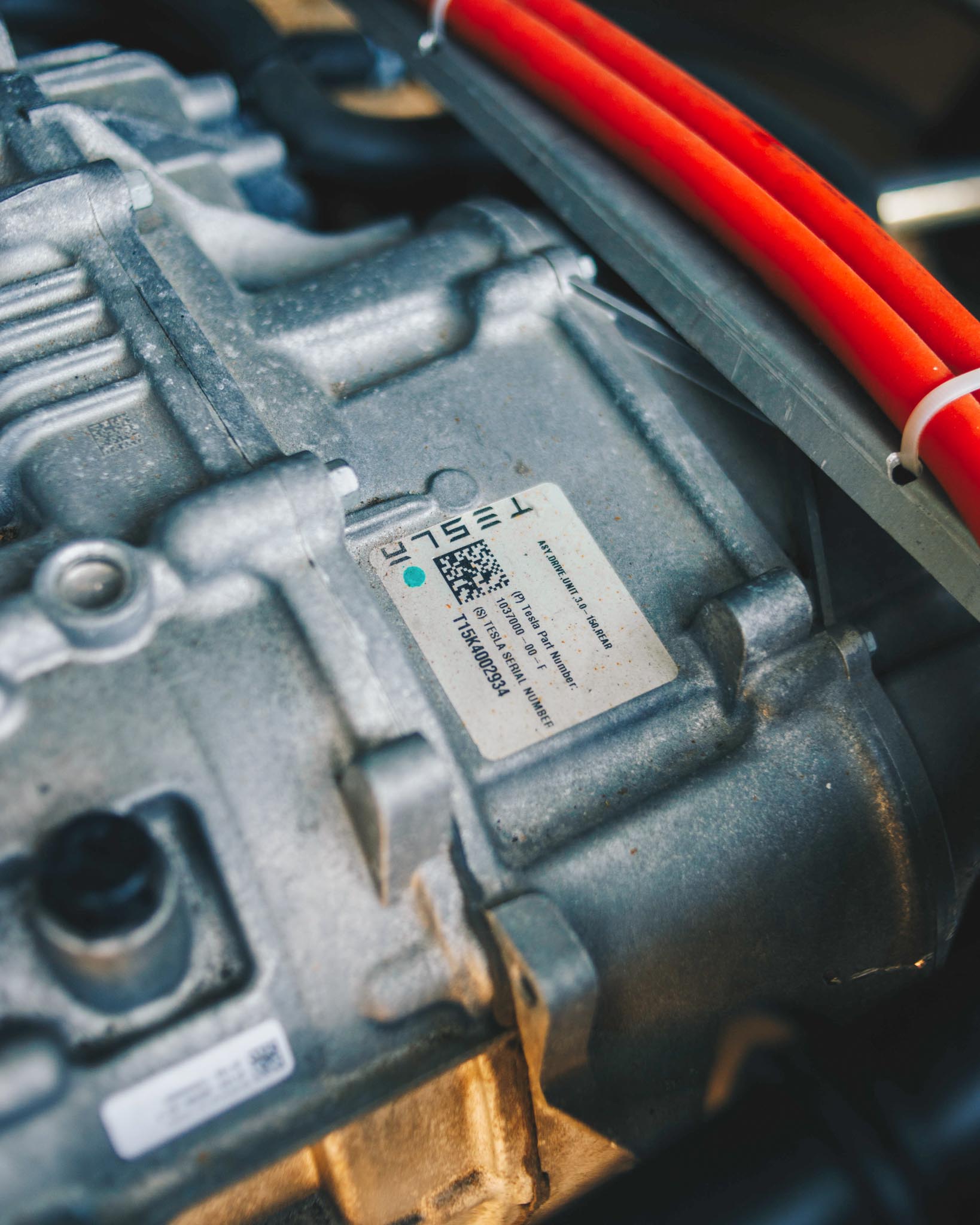
For example, this Vanagon has a small-drive Tesla Model 3 motor, and DreamEV came up with a clever, more cost-friendly battery setup from 3 Chrysler Pacifica hybrids. There are 12 modules… 6 pairs of 2 wired in series. Each module has 16 cells. 16×12÷2… for a total of 96 cells. Now I’m not gonna pretend I know what that means lol, but it’s all about making the Battery Monitoring System (BMS) read things the way you want/need them to be read. In the VW Vanagon, this battery setup is good for 100 miles of range.
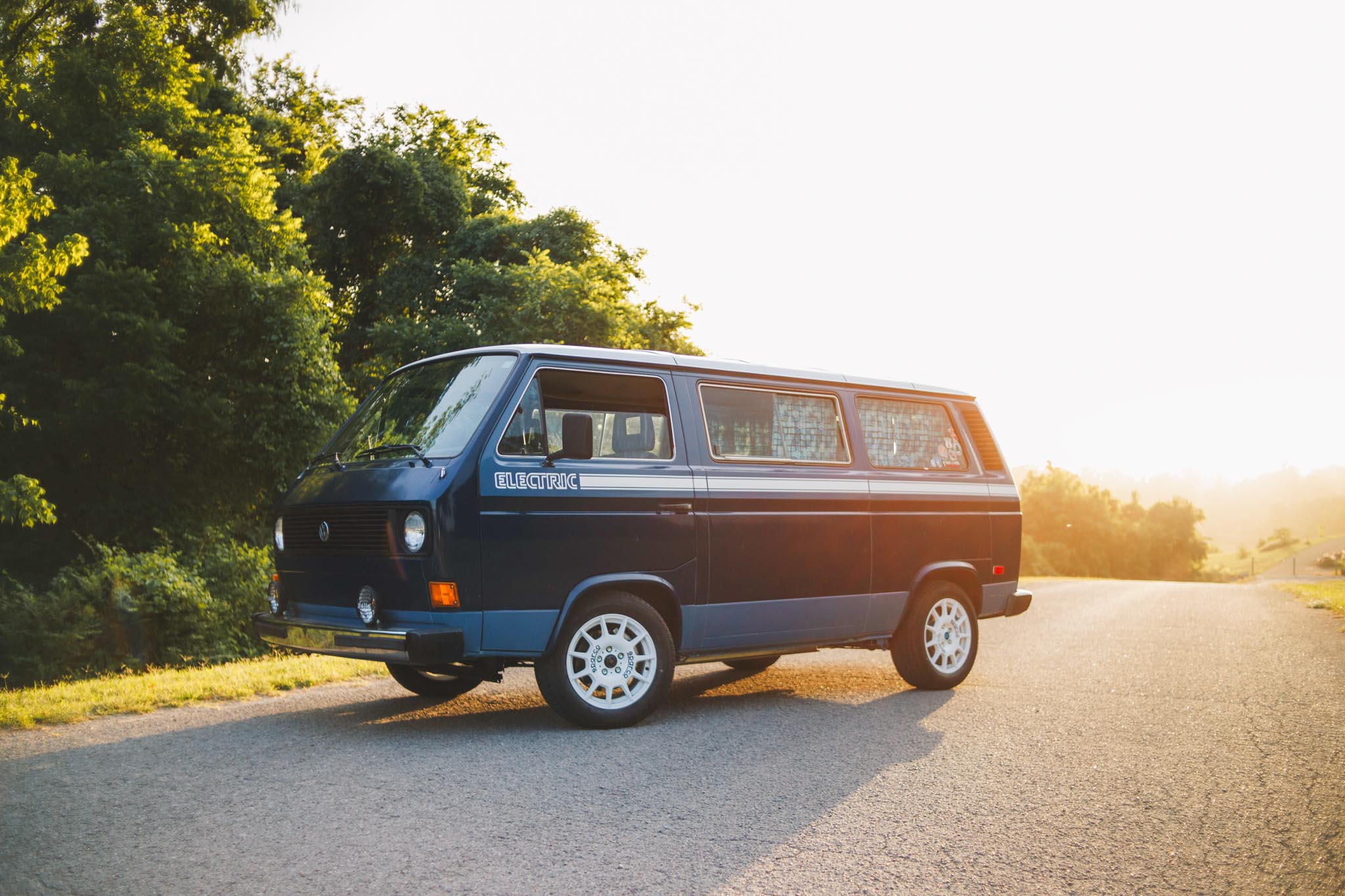
I know range anxiety is real…
And most people only start to feel comfortable in the 250+ mile range these days. But you really just have to ask yourself, how & where are you going to be using the vehicle? And where is your sweet-spot when it comes to range, weight, battery storage, and budget?
This VW Van was not built to flex top levels of speed or range… it was built to be a realistic real-world EV conversion. Even still… it’s about 3x faster than the stock VW <100hp engine. So at a 5.3-second 0-60… flexing is relative lol.

When it comes to your ‘dream’ EV conversion…
DreamEV can convert any vehicle & drivetrain combo. Front engine, mid engine, rear engine… front-wheel-drive, rear-wheel drive, all-wheel-drive. Anything goes. This is where an enthusiast’s mind starts to take off & things get creative. Thinking about cars that we love in a sense of an EV conversion gets really fun. The sky is the limit.
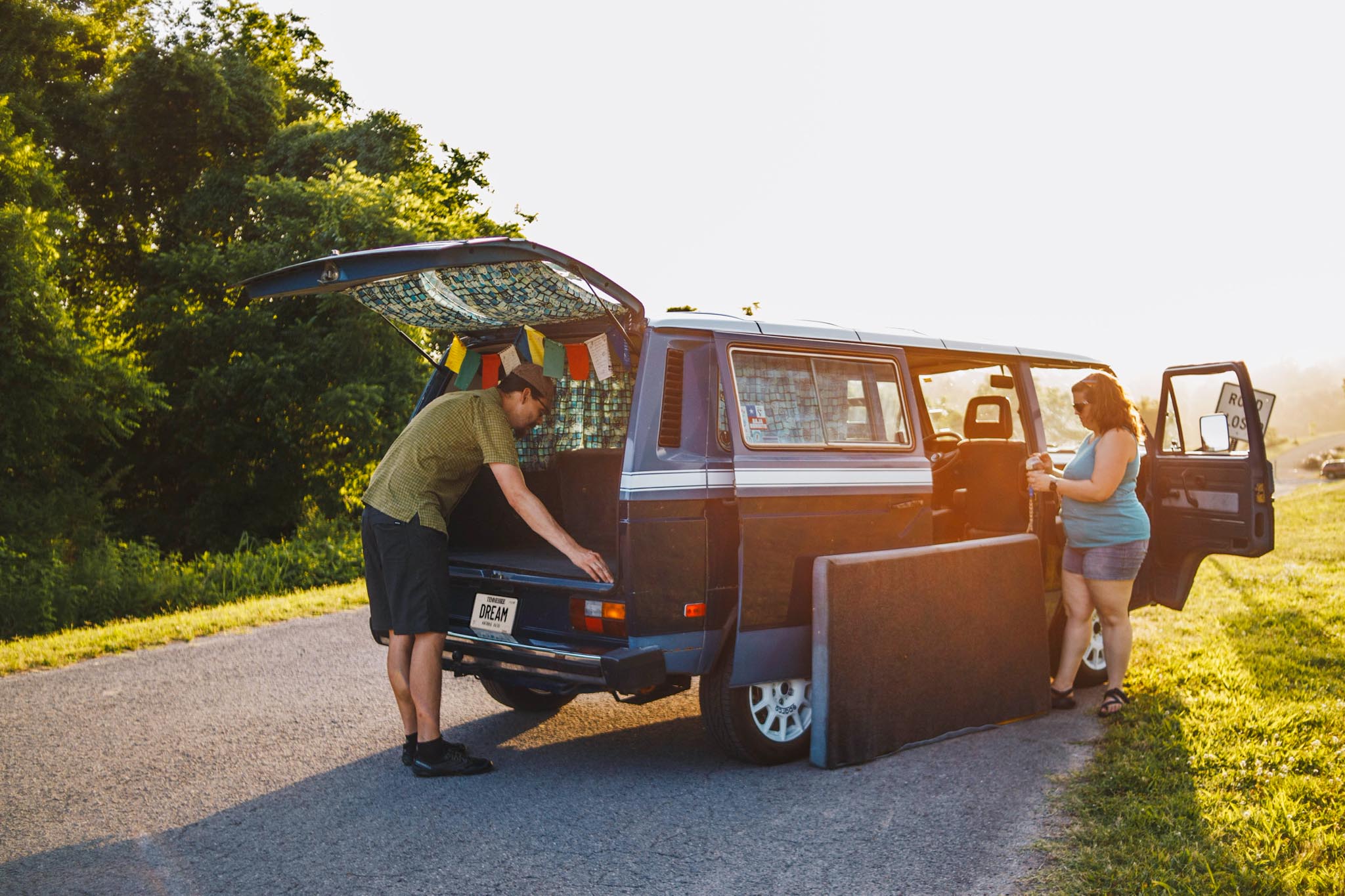
With this VW bus, Dream EV removed absolutely everything associated with internal combustion. The engine, transmission, gas tank, fuel lines, secondary heater, wiring harness, exhaust, and a weirdly oversized e-brake assembly were all removed to clear space underneath the vehicle. Original crossmembers were also cut out, and the Vanagon was reinforced in new & more creative ways. When all was said & done, as an EV, the Vanagon now weighs only 200lbs more than it did as an internal combustion vehicle.
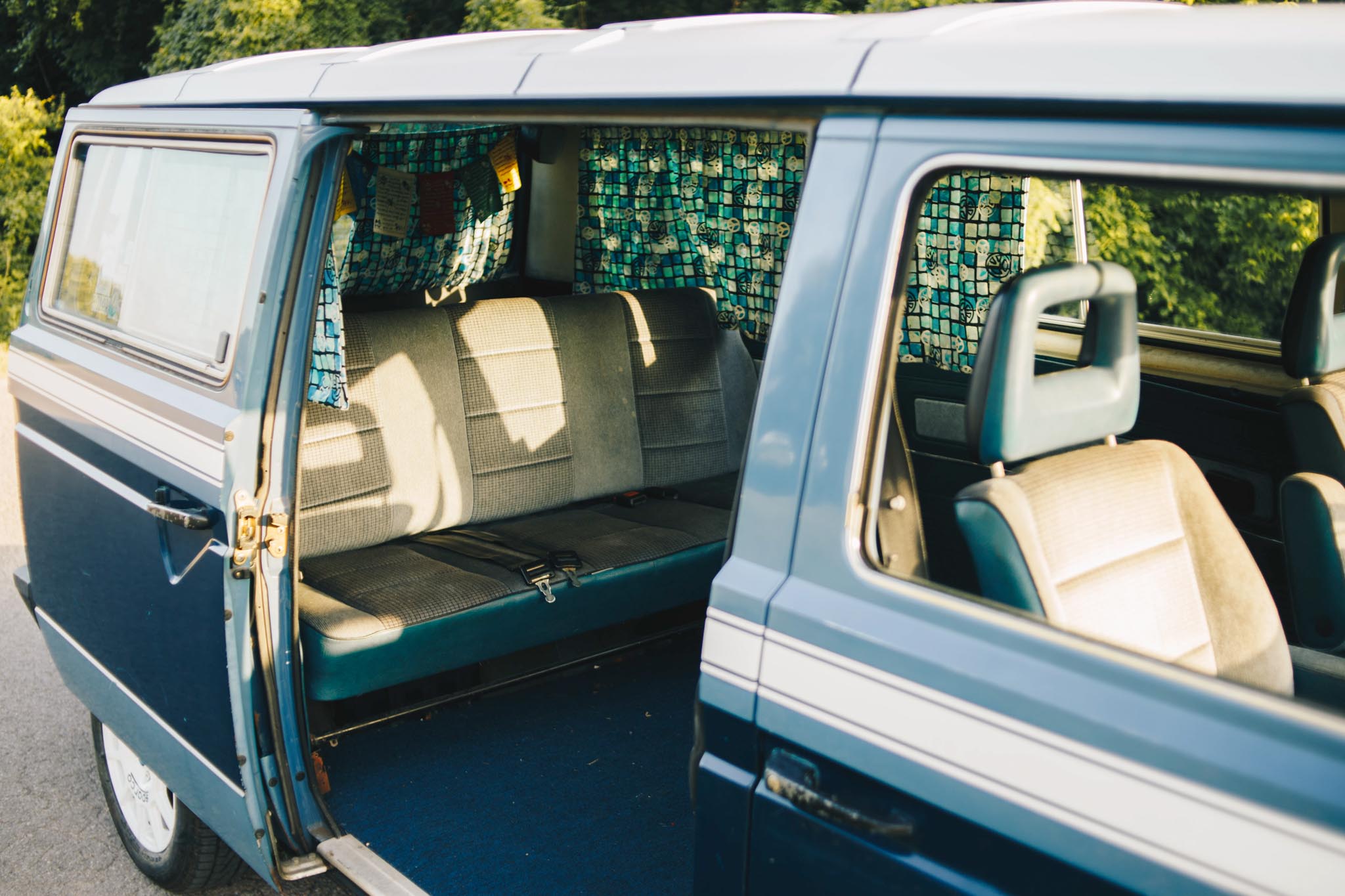
When it comes to an ideal vehicle choice, the rule of thumb used to be that smaller was better. Smaller cars were usually lighter, and therefore could get a longer range. But now in the current phase of battery technology, batteries have become larger, stronger, more dense, and yield much better range. So really, you’re able to choose a larger vehicle if desired. You still need to be somewhat weight conscious. But in some ways, a more midsize vehicle has become best, as it gives you more options for battery placement. At the end of the day though, every car is its own unique Jenga puzzle… and DreamEV will find a path to convert it in clever, functional fashion.
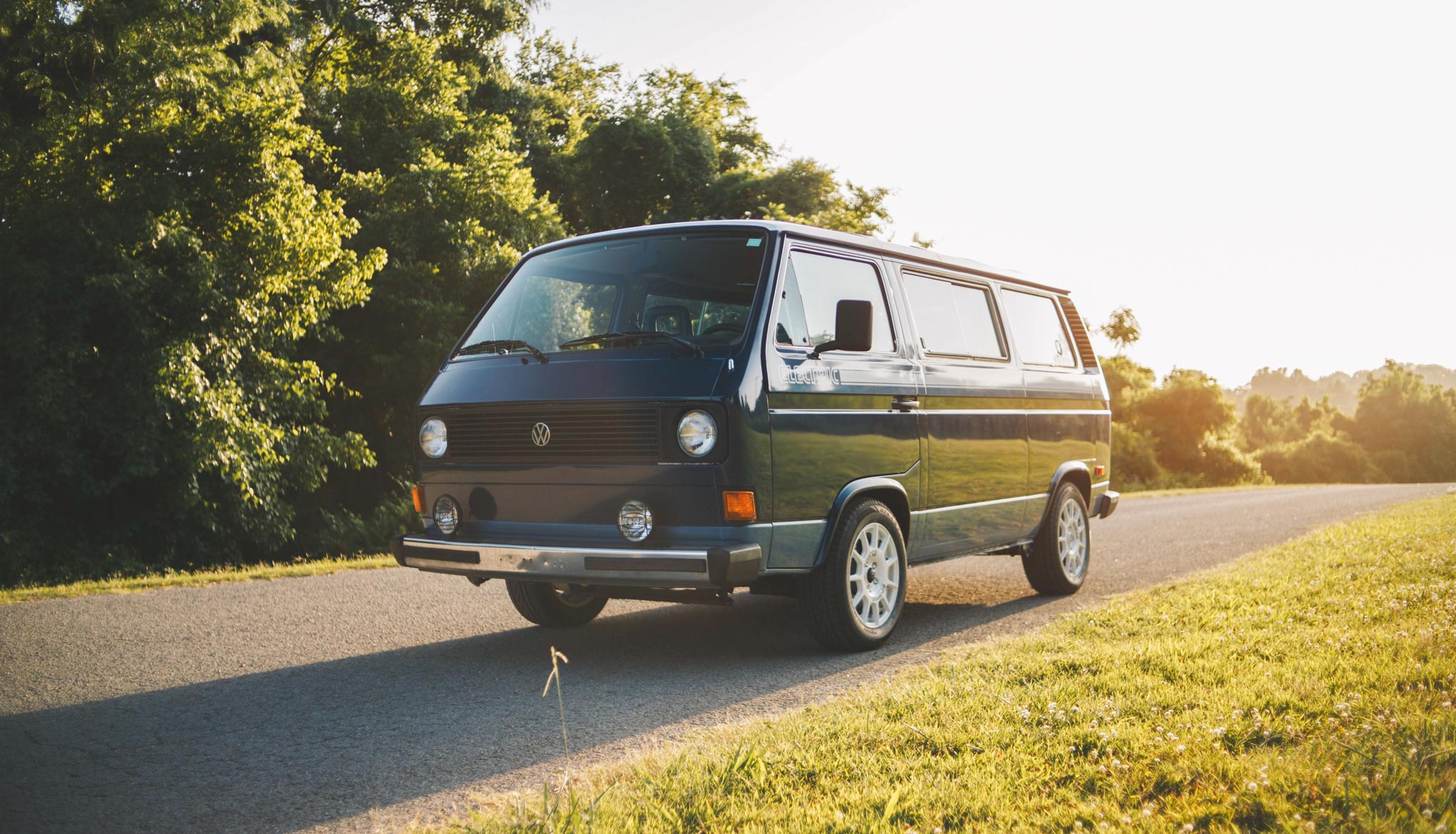
This is what EV can look like through the eyes of an enthusiast/hobbyist/purist.
If we’re being blunt, there’s a lot of delusion & distortion (smoke & mirrors) around new EVs & the way they’re being manipulated & marketed to consumers. And if we’re really talking about being green & good to our earth… if that’s TRULY what this is all about:
DreamEV is using vehicles that ALREADY exist on this planet. Vehicles that have ALREADY been created. And DreamEV’s giving them a recycled, reimagined, radical, zero-emissions new life. Furthermore, they take batteries that have ALREADY been mined & produced… and give them an opportunity for further existence in a new vehicle.
DreamEV is earth conscious… but they’re also car enthusiasts. And they don’t feel like the two need to clash. Ultimately, they got to a point in their careers where they wanted to use their talents to manufacture something NEW in this universe. The creation of DreamEV checked a lot of boxes & personal life goals. So here we are.
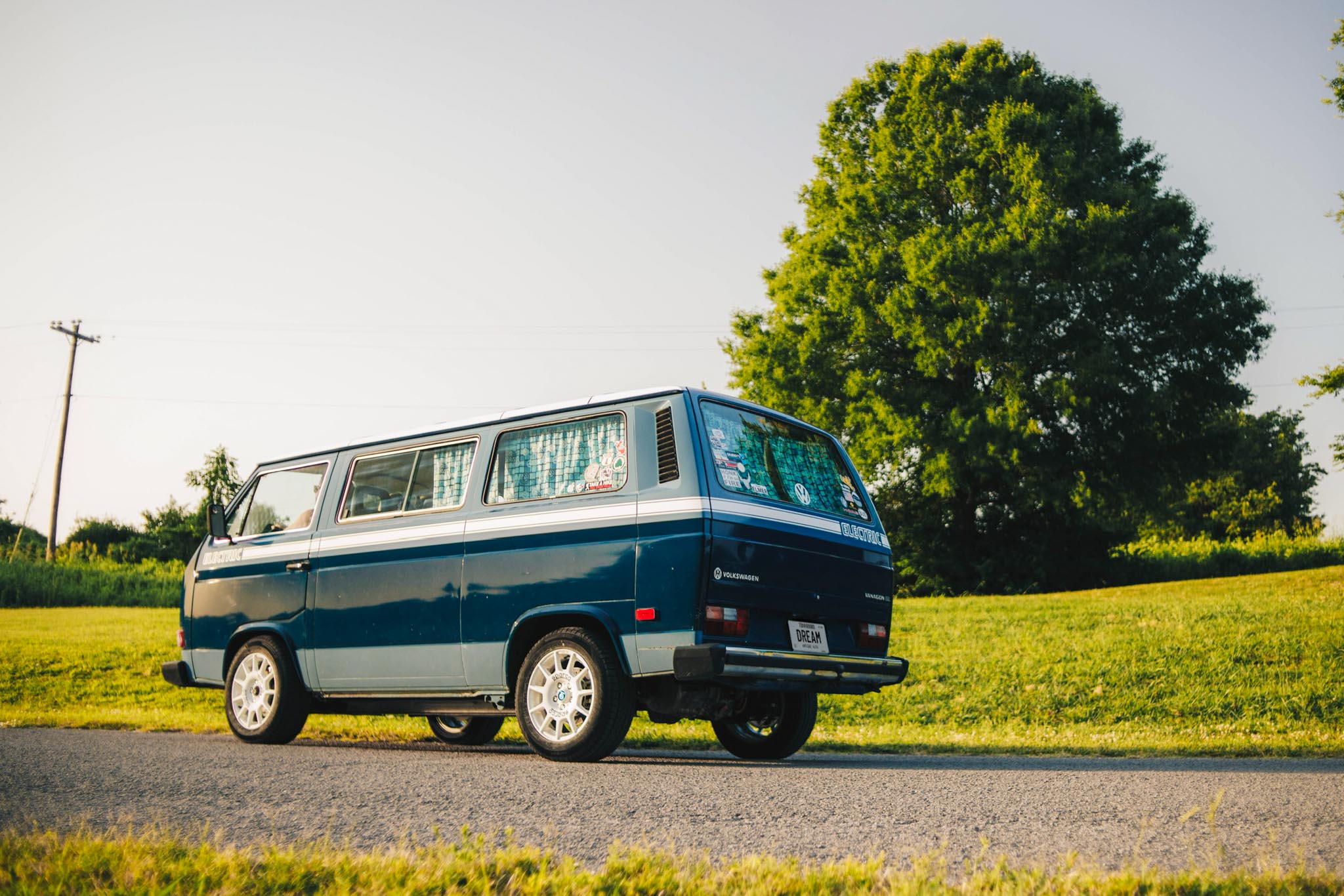
1982 Volkswagen Vanagon GL
SUSPENSION
T3 Technique HD sway bar in front, and added sway bar in rear
Koni adjustable shocks
Weitec performance lowering springs
Power Flex polyurethane bushings
Disc brake conversion: front from Audi A4, rear from VW Transporter
Bosch iBooster electric booster with a custom 90 degree relocation bracket
Electric power steering from Toyota Corolla integrated into the stock steering column, and an electric parking brake with custom CAN interface
EXTERIOR
Custom vinyl beltline and Electric wordmark
A regrettable white vinyl top (shrinkage)
Sweet-ass stickers
Hella spot lights & Sparco Terra 16×7 5×112 ET35
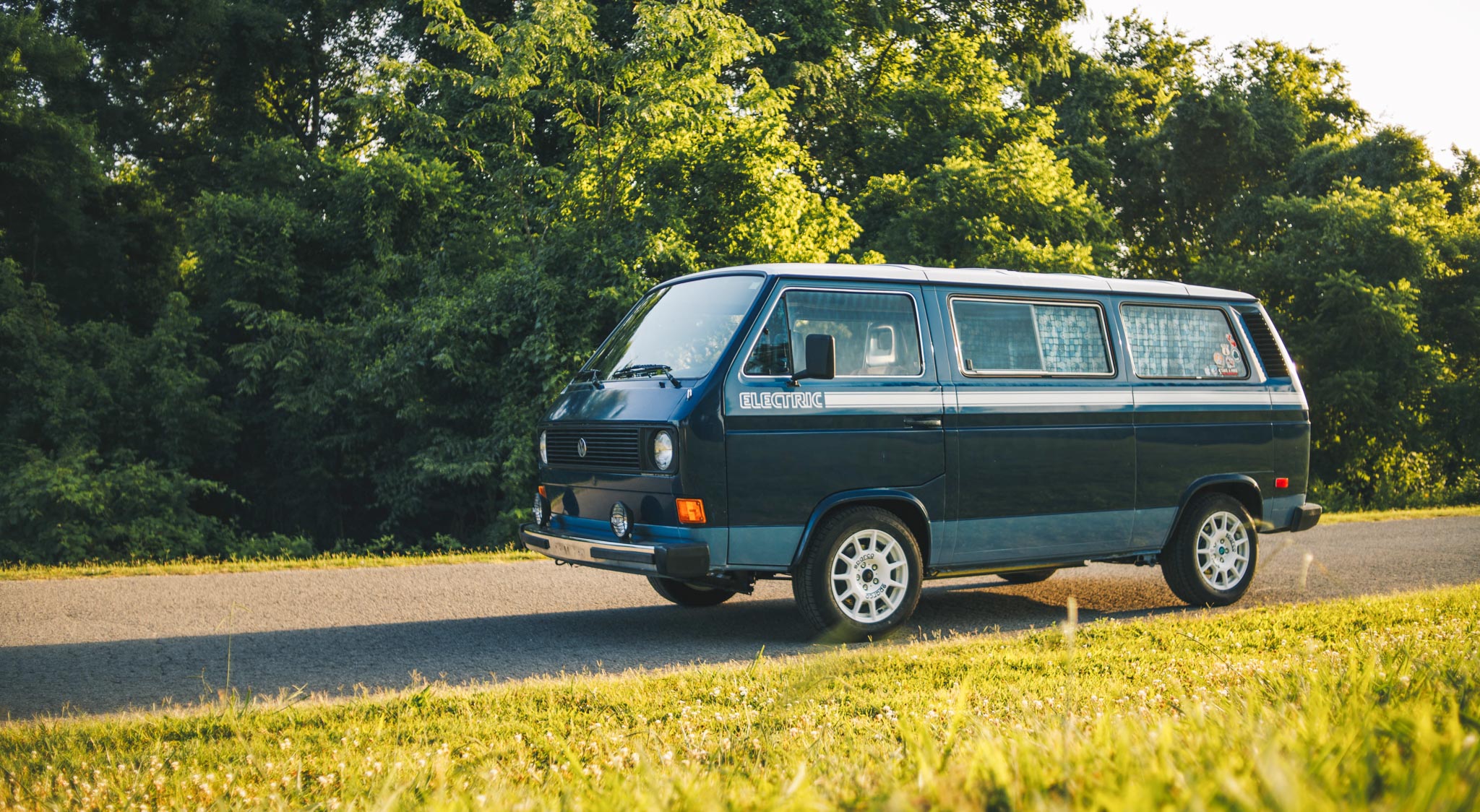
ENGINE
Stock drivetrain completely removed
EV converted
Tesla Model 3 drive unit
Power – 239 kW (258 hp)
Torque – 430 Nm (317 lb-Ft) 0-60 in 5.3 seconds.
930 CV Conversion
Powered by 12 LG Chem modules sourced from 3 Chrysler Pacifica Hybrids.
Each module has 16 cells and a capacity of 2.6 kWh.
All totaled approximately 32 kWh.
This yields approximately 100 miles per charge.
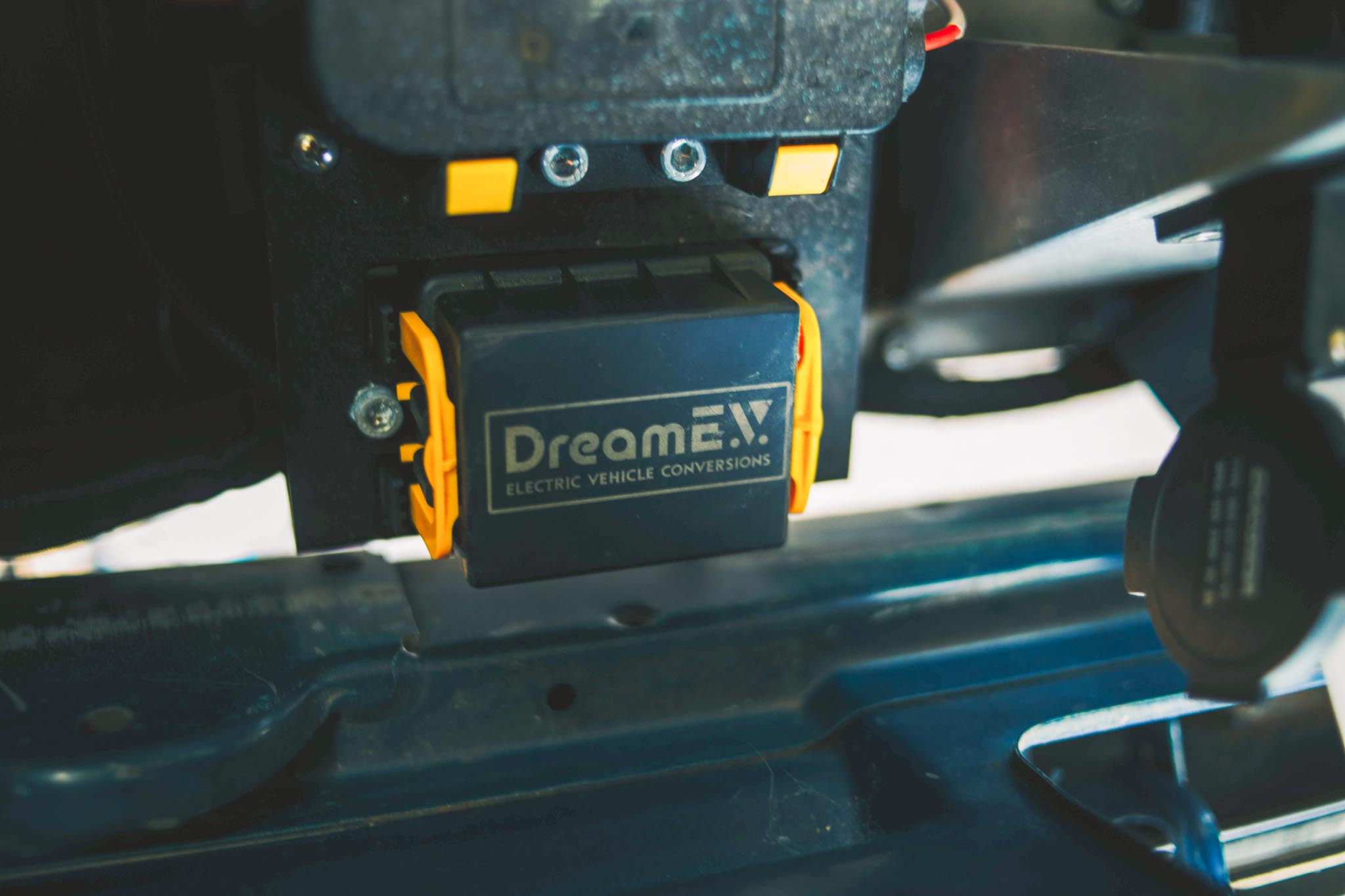
INTERIOR
Leather Nardi Steering wheel
Peace sign window curtains
Tibetan Prayer flags (with a fun story)

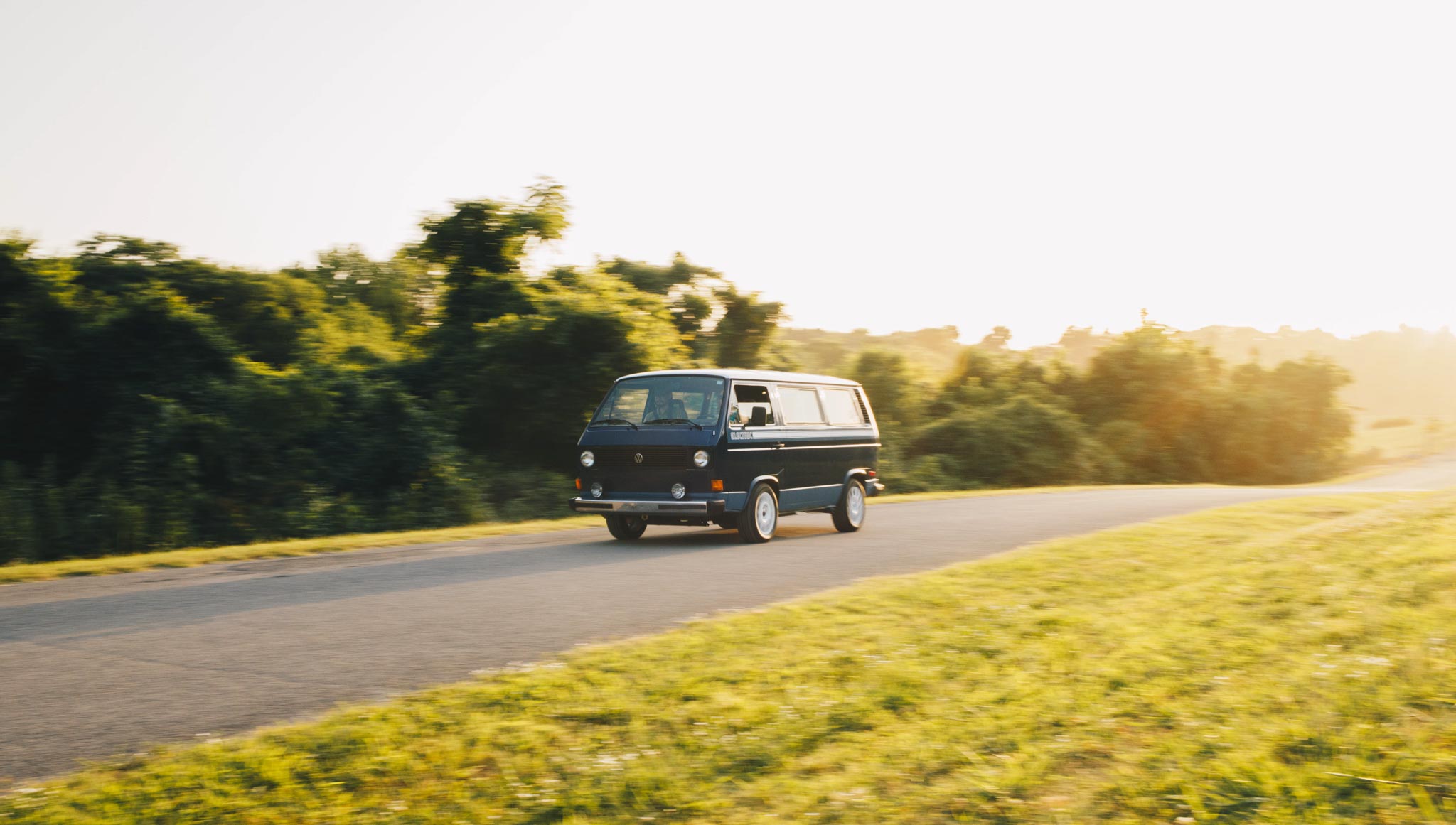

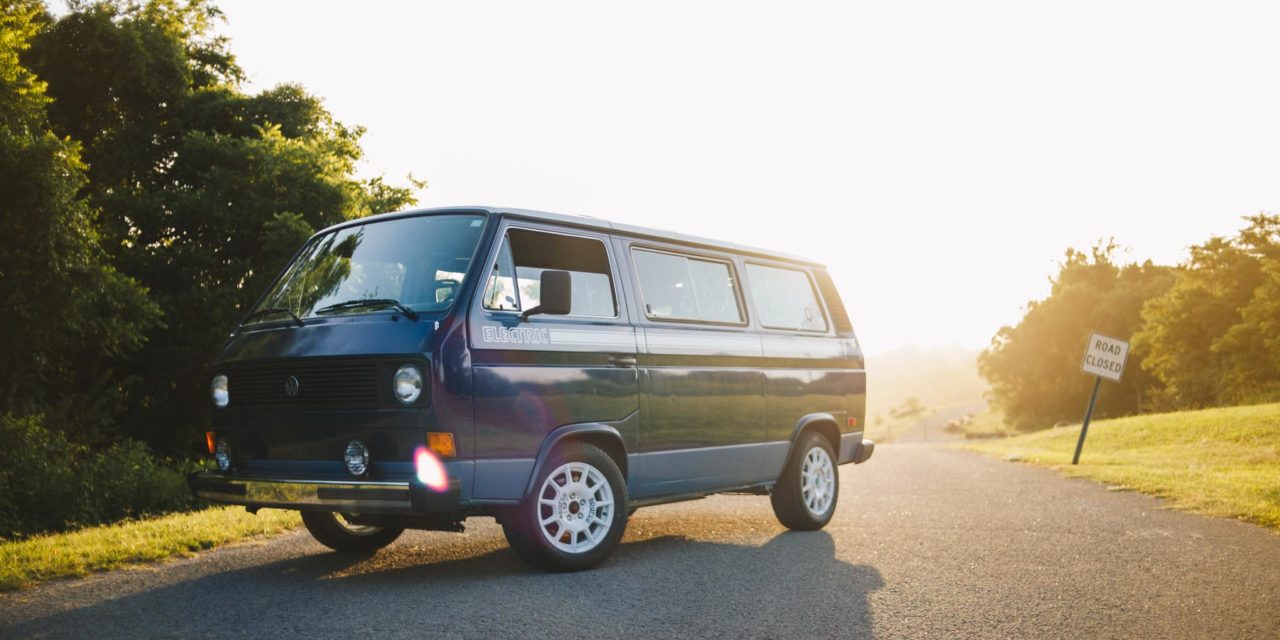

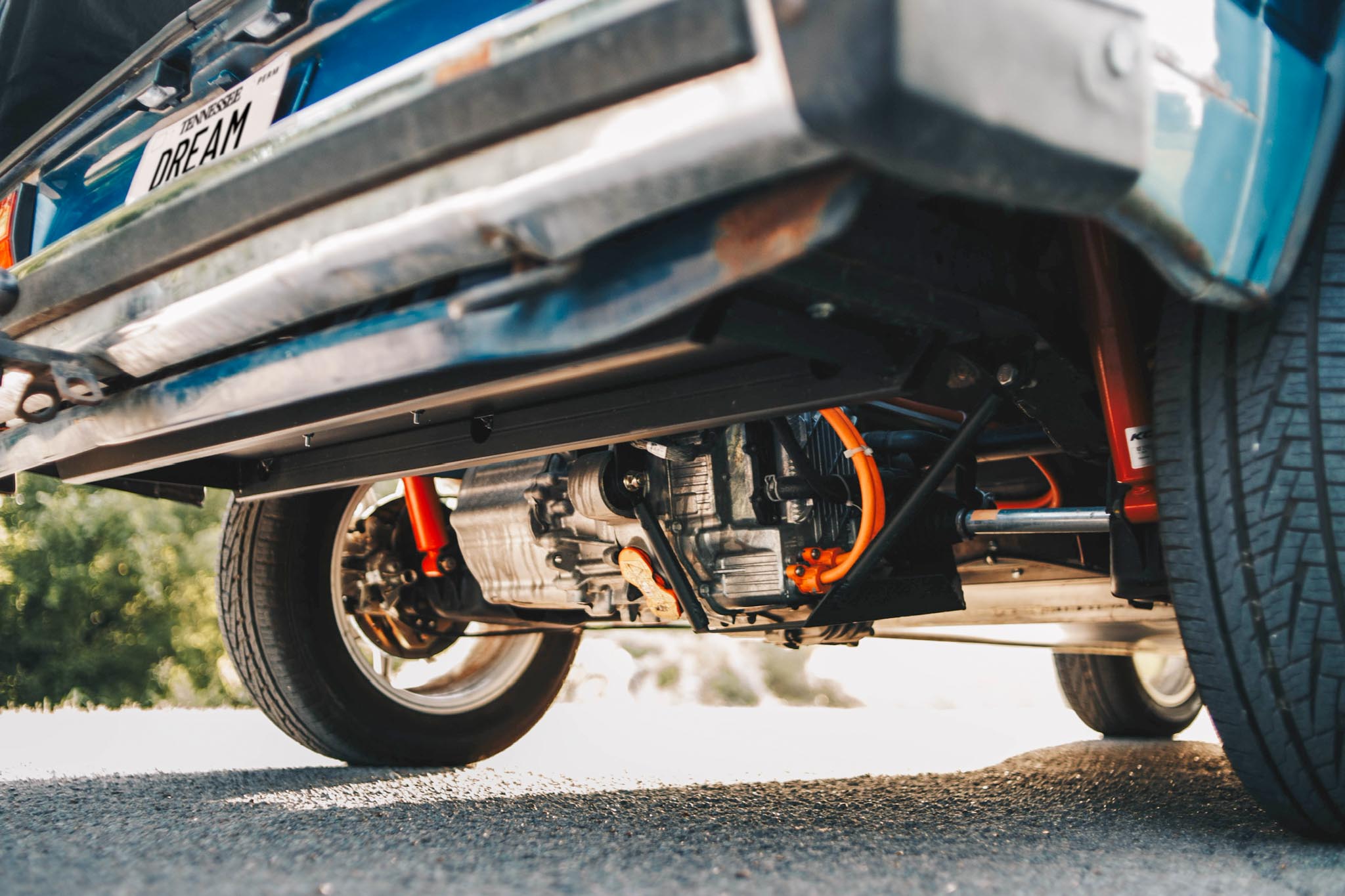
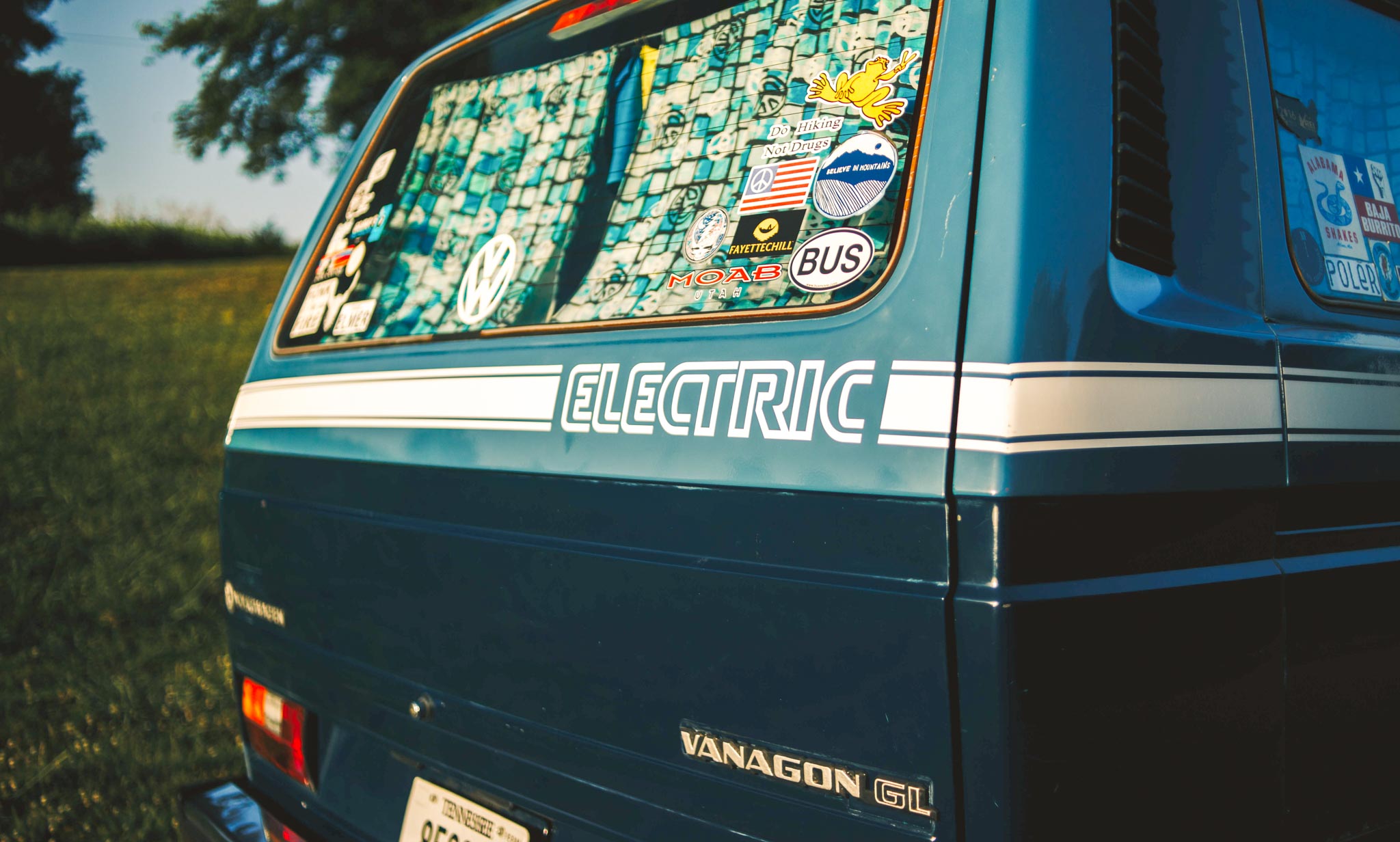
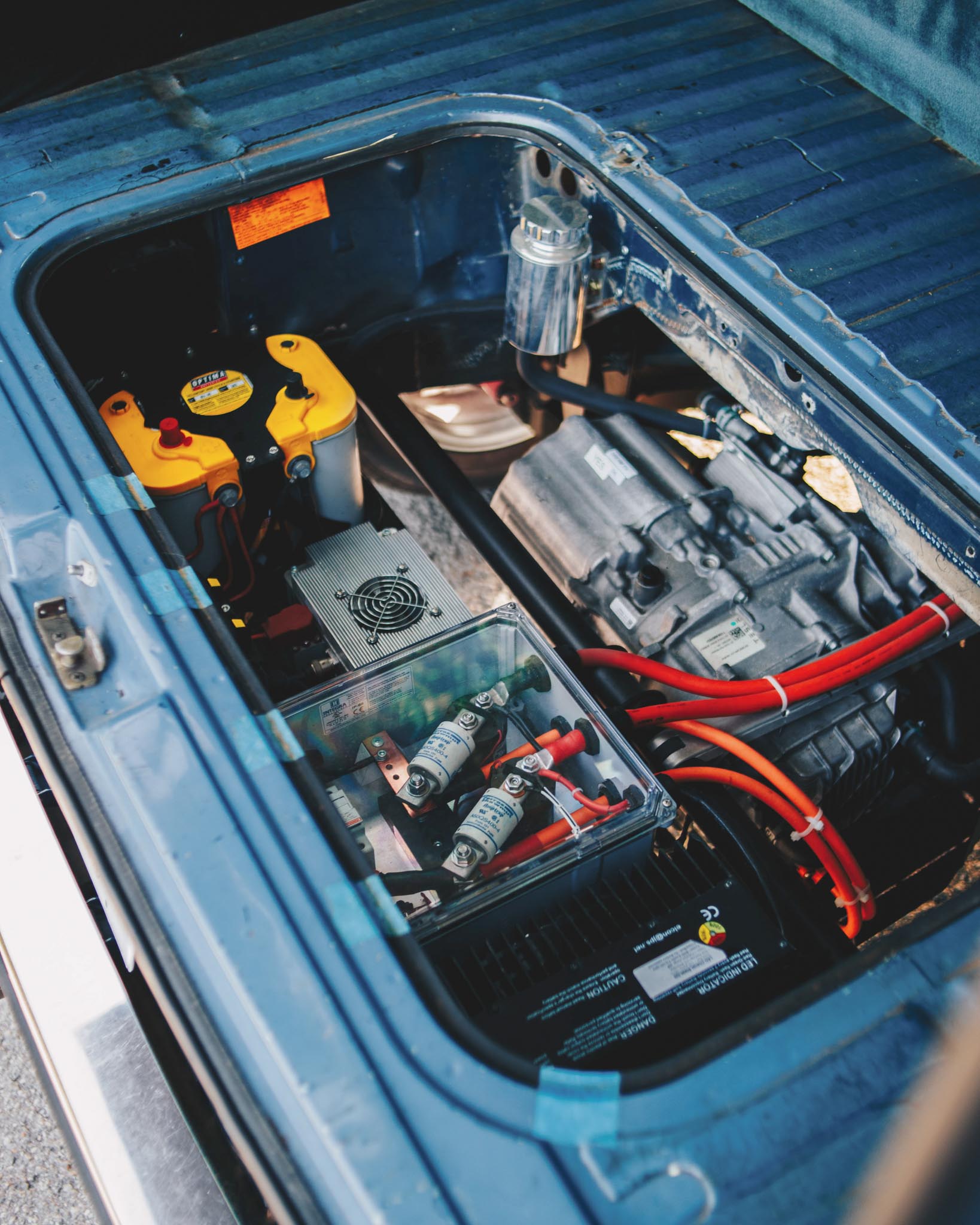
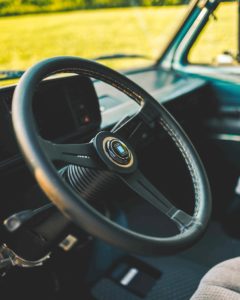
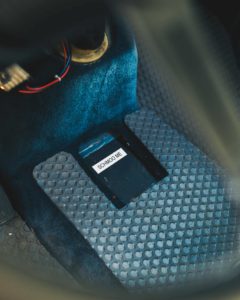
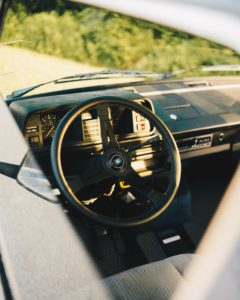
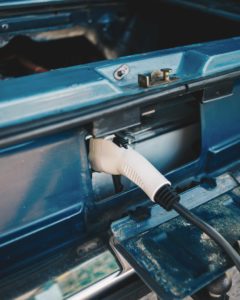
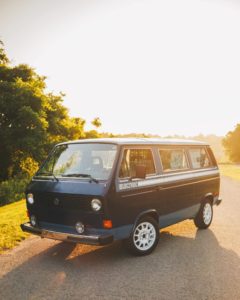


For that $$$, I’d do a diesel swap
I’m going to do whatever I can to avoid this mandated EV future until it passes like a bad nightmare
Awesome.